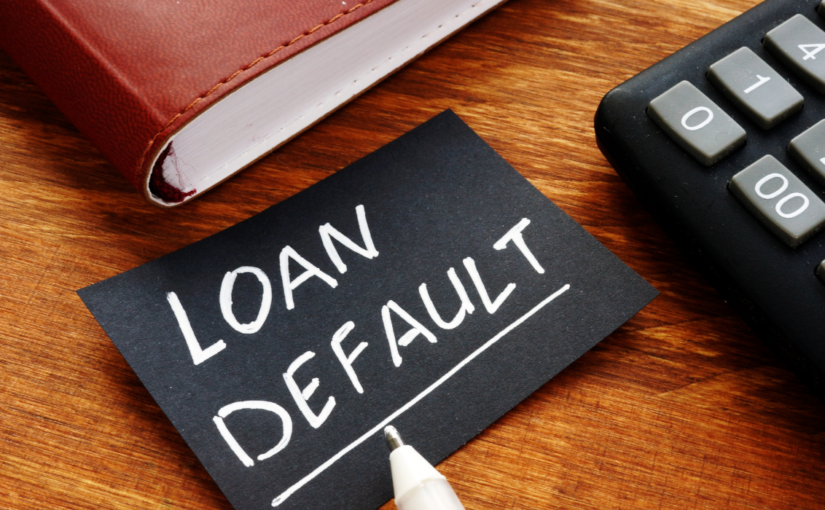back
CMBS Loan Defaults and Workout Strategies: What Investors Need to Know
04-2023

Many investors are growing more concerned about the possibility of loan defaults and workout plans tied to commercial mortgage-backed securities (CMBS) as the COVID-19 epidemic continues to have an impact on the world economy. We’ll examine CMBS loan defaults, workout tactics, and what investors should know to safeguard their investments in this blog.
How do CMBS Loans Work?
A particular kind of commercial real estate loan known as a CMBS loan is securitized and offered to investors as a bond. Large commercial properties including office buildings, shopping malls, hotels, and apartment complexes are frequently financed with the help of these loans. The bond’s investors receive payments from the borrower after they have purchased the bond, who also makes loan installments.
What are CMBS Loan Defaults?
When the borrower is unable to make loan installments, the CMBS loan defaults. Numerous factors, such as economic downturns, vacant tenants, and other unforeseen events, may cause this. Bondholders may not receive full payments in the event of a loan default, and the bond’s value may drop.
What are Workout Strategies?
Plans are put in place called “workout strategies” to deal with CMBS loan defaults. These tactics can take a variety of forms, such as refinancing the debt, extending the loan’s maturity date, lowering the interest rate, or taking the property into foreclosure. A workout strategy’s objective is to protect bondholders from losses while maximizing the return on their investment.
What are the Current Trends in CMBS Loan Defaults?
The commercial real estate industry has been significantly impacted by the COVID-19 epidemic, which has increased the number of CMBS loan defaults. Trepp, a top source of data and analytics for the commercial real estate sector, reports that the CMBS delinquency rate increased significantly from just 2.29% in March 2020 to 10.32% in June 2021.
The hotel industry has been among those hardest hit by the outbreak. The occupancy and revenue of hotels and other accommodation facilities have significantly decreased, increasing the danger of loan defaults. The hotel CMBS loan delinquency rate as of June 2021 was 23.25%.
What are some Workout Strategies for CMBS Loan Defaults?
To deal with CMBS loan defaults, a variety of workout techniques can be applied. The particular approach taken will be determined by the unique aspects of the loan and the property in question. Typical exercise tactics include:
- Loan Modification: To make the loan conditions more bearable for the borrower, a loan modification is when the terms of the loan are altered. This can entail lowering the interest rate, extending the loan’s maturity date, or altering the repayment schedule.
- Forbearance: A forbearance arrangement enables the borrower to pause loan payments while a workout plan is implemented. This can offer the borrower some breathing room to bounce back from a short-term setback like a natural disaster or pandemic.
- Foreclosure: In the event that a borrower is unable to make loan payments, foreclosure may be required. In order to repay the bondholders, this entails taking custody of the property and selling it.
- Deed in Lieu of Foreclosure: With a deed in lieu of foreclosure, the lender releases the borrower from their debt obligations in exchange for the borrower’s voluntary surrender of property ownership.
What do Investors Need to Know about CMBS Loan Defaults and Workout Strategies?
Loan default risks and their possible effects on investments should be understood by anyone who invests in CMBS loans. Investors should think about diversifying their portfolios and purchasing a variety of CMBS bonds to reduce the risk of losses. They should also pay close attention to the bond’s and the asset being financed’s credit ratings as well as the borrower’s prior performance.
Additionally, investors should keep up with market developments and be ready to modify their portfolios as necessary. Working with a financial advisor or investment specialist to design a plan that considers the state of the market and the possibility of loan defaults may be necessary to achieve this.
While CMBS loan failures might be a danger for investors, it’s crucial to remember that they are not always a good reason to steer clear of commercial real estate investments. Investors can reduce these risks and potentially see big returns on their investments by conducting adequate due diligence and maintaining a well-diversified portfolio.
In conclusion, investors in the commercial real estate market should take CMBS loan defaults and workout tactics into account. Investors can make educated judgments about their portfolios and potentially earn sizable returns on their investments by being aware of potential dangers and keeping up with market developments.
F2H Capital Group is a debt advisory firm specializing in negotiating the best terms for your commercial real estate projects. The company offers a range of financial products and services, including fixed loans, bridge loans, and construction loans across all asset types. Please contact us for any of your financing needs.

